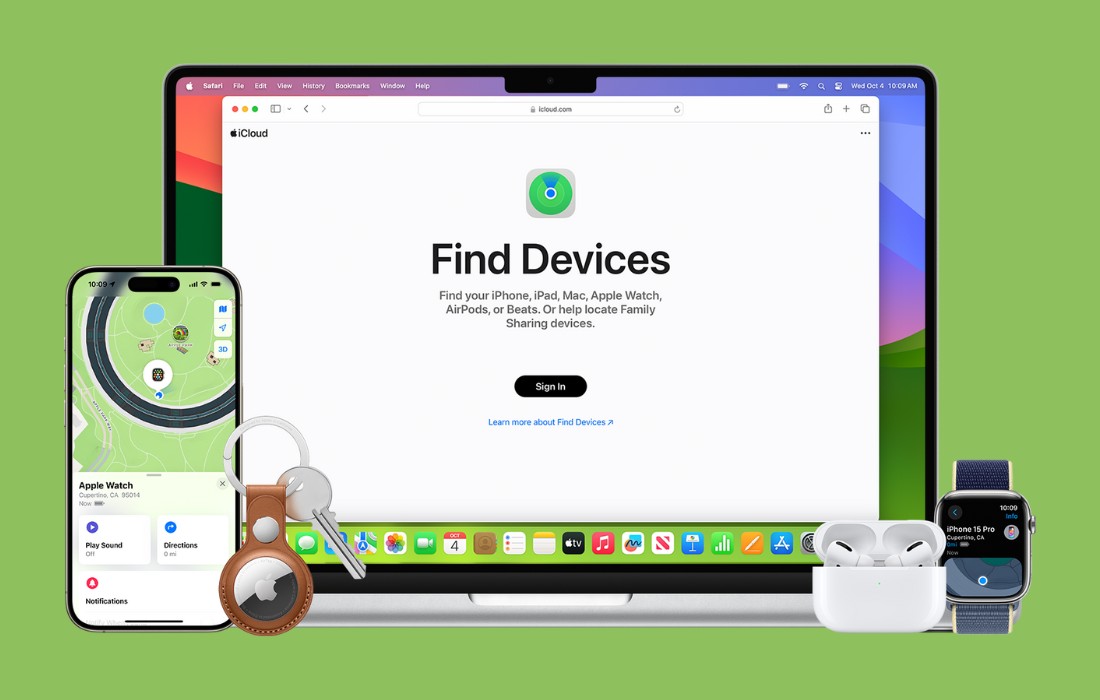A Detailed Guide on Starting an Internet Service Provider (ISP) in Kenya: A Booming Sector. Kenya’s internet sector is experiencing rapid growth, with an increasing number of Internet Service Providers (ISPs) emerging. In 2023, notable players like Starlink and Airtel 5G entered the scene, contributing to an ever-expanding landscape. The surge in smartphone ownership, reaching over 34.5 million by the end of Q3 2023-2024, is another clear indication of this growth. This growth is complemented by a significant rise in broadband and fixed data subscribers, now at over 1.39 million by the end of 2024, a 25.67
The increasing competition and user demand present a lucrative opportunity for aspiring entrepreneurs. So, what does it take to start an ISP in Kenya? Here’s a detailed roadmap on how to navigate the industry and create a successful ISP business in Kenya.
What Is an Internet Service Provider (ISP)?
An Internet Service Provider (ISP) is a company or organization that provides individuals and businesses with internet connectivity. ISPs build and operate the necessary infrastructure required to deliver internet services to customers. This could include undersea cables, routers, and wireless networks.
In Kenya, the ISP sector has evolved to include a variety of players at different levels:
- Tier 1 ISPs – Backbone providers that control internet infrastructure, including undersea cables.
- Tier 2 ISPs – Providers with regional networks that depend on Tier 1 ISPs for broader internet access.
- Tier 3 ISPs – Local ISPs that deliver internet services to residential users or small businesses.
Types of ISPs in Kenya: Tier 1, Tier 2, and Tier 3
- Tier 1 ISPs: These are the backbone of the internet infrastructure. They own large-scale networks like submarine cables and operate international and intercontinental links. They provide internet traffic to other ISPs but do not typically serve end users. Examples include global giants like Google Fiber and AT&T.
- Tier 2 ISPs: These companies own substantial infrastructure but usually rely on Tier 1 ISPs for large-scale internet transit. They often provide internet services to other ISPs and large businesses. In Kenya, Bayobab is a prime example, offering extensive fiber networks that extend across 47 international locations.
- Tier 3 ISPs: These are the most common type for newcomers. Tier 3 ISPs primarily serve the residential and small business markets, providing internet connectivity directly to consumers. Most local ISPs, including Faiba and Zuku, fall into this category.
Licensing and Regulatory Requirements
To become an ISP in Kenya, you need to adhere to the regulatory guidelines set by the Communication Authority of Kenya (CA). The following steps are crucial in ensuring that your ISP business is legally compliant.
- Obtain an Application Service Providers (ASP) License:
- This is the most basic license required to operate as an ISP in Kenya.
- The non-refundable application fee is KES 5000.
- The annual operating license fee is determined based on your annual gross turnover, with a minimum of KES 800,000.
- Network Facilities Provider (NFP) License:
- Required if you plan to build your own fiber or wireless network.
- This license allows you to roll out internet infrastructure across regions.
- Local government permits and other compliance documents will also be needed.
- Frequency Spectrum Access:
- ISPs must acquire the necessary frequency spectrum licenses to use wireless bands for delivering services.
- This requires an Annual Spectrum Fee, which can vary based on the spectrum band used.
- Afrinic Membership:
- You will need to obtain Autonomous System (AS) Numbers and IP addresses from Afrinic, the African Internet Registry.
Steps to Establish Your ISP Business
Step 1: Register Your Company
- Ensure that your business is legally registered in Kenya, whether as a company, sole proprietor, or partnership.
- Have a registered office and premises.
Step 2: Meet Compliance Requirements
- Ensure at least 30
- Provide proof of compliance with tax obligations and other legal requirements.
Step 3: Network Infrastructure
- You will need a reliable infrastructure to deliver internet connectivity. This can be a significant investment, but services like Bayobab Kenya can help mitigate the need to build your own network from scratch.
- Depending on your licensing, you may need to set up terrestrial fiber or wireless networks.
Step 4: Choose a Pricing Model
- Competitive pricing is crucial for attracting customers.
- Depending on the demographic of your target market, you may decide to offer budget-friendly plans or premium packages with better speeds and coverage.
Internet Packages and Pricing in Kenya
Pricing for broadband services in Kenya varies widely, with home internet packages priced between KES 1,500 and KES 15,000. Here’s a breakdown of popular plans:
- Poa Internet: 4 Mbps for KES 1500/month.
- Faiba (JTL): 40 Mbps for KES 5000/month.
- Zuku: 10 Mbps for KES 3,000–3,500/month.
- Starlink: KES 1,300 for 50 GB, capped.
ISP Speeds in Kenya
- The average download speed in Kenya is around 13.69 Mbps.
- Top providers like Starlink and Telkom Kenya offer download speeds between 50–250 Mbps, with Telkom registering an impressive 33.04 Mbps as the fastest for fixed broadband.
Key Infrastructure and Security Needs
Infrastructure
- If you’re a Tier 2 or Tier 3 ISP, leveraging existing infrastructure from providers like Bayobab can reduce your initial capital expenditure. Bayobab’s services include access to submarine cables in Mombasa and reliable Layer 2 services for optimal network performance.
Security
- Security is a major concern for any ISP. DDoS attacks are common, and deploying services like ARBOR Systems can protect your infrastructure.
- Partnering with cybersecurity firms to safeguard your network and customer data is essential.
Customer Support and Managing Downtime
Customer service is an essential component of any ISP. Timely and effective customer support can significantly enhance user satisfaction. In addition to this, you will need to have a strategy to minimize downtime.
- Redundant Networks: Ensure that you have redundancy built into your network. For instance, the National Long Distance (NLD) fiber routes ensure reliability by providing alternative routes in case of failures.
- 24/7 Support: Partner with providers like Bayobab Kenya, which offer a 24/7 Customer Success Center, ensuring that any technical issues are resolved promptly.
Conclusion
The ISP sector in Kenya is booming, with increasing consumer demand, more ISPs entering the market, and expanding infrastructure. Whether you aim to be a Tier 2 or Tier 3 ISP, there are several critical factors you need to consider to succeed. These include understanding the regulatory landscape, having a robust infrastructure, setting competitive pricing, ensuring top-tier security, and providing excellent customer service.
Starting your own ISP in Kenya is an exciting opportunity, but it requires a clear plan, investment in technology, and compliance with regulations. By tapping into resources provided by larger players like Bayobab Kenya, aspiring ISPs can accelerate their entry into the market while benefiting from their extensive network and expertise.
Key Takeaways:
- Kenya’s ISP sector is growing with a surge in demand for broadband services.
- Understand the different types of ISPs (Tier 1, 2, and 3) and their roles.
- Obtain necessary licenses and permits from the Communication Authority of Kenya (CA).
- Infrastructure and security are critical to success in the ISP business.
- Customer support and minimizing downtime are essential for retention.
How to Start an Internet Service Provider (ISP) Company in Kenya
The demand for internet services in Kenya has surged in recent years, driven by the growing need for online work, education, and entertainment. As a result, the ISP business is more profitable than ever, but starting one requires significant investment and strategic planning. Whether you’re looking to resell internet services in your local area or set up a large-scale ISP operation, the following steps will guide you through the process.
Key Steps to Start an ISP in Kenya:
1. Get the Right Permits and Licensing
Before you can operate as an ISP, you must obtain an Application Service Provider License from the Communications Authority of Kenya (CAK). This is required for both large-scale and regional wireless internet service providers (WISP).
Steps for Licensing:
- Fill the Application Form: Available on the CAK website.
- Pay the Application Fee: Make the necessary payments and submit the receipts.
- Provide Documentation: Include a certificate of incorporation, tax compliance certificate, identity cards/passports of directors, and proof of capital.
- Pay License Fees: After approval, pay the license fees and obtain the Application Service Provider license.
Documents Required:
- Filled application form
- Certificate of incorporation
- Tax compliance certificate
- Director and shareholder details
- Capital Markets Authority certificate (if applicable)
2. Find a Location for Your Service
Location is crucial when choosing a service area for your ISP business. The right location will determine how effective and profitable your service can be.
Key considerations:
- Relay Location: You need a clear line of sight between the customer’s location and your relay station (this could be a rooftop, radio tower, or building). Avoid areas with many obstacles like tall buildings or trees.
- Population Density: Urban areas or towns with high population density are ideal. These locations offer a larger customer base for your network.
- Topography: Choose areas with minimal physical barriers between the customer’s premises and your relay station. Hills and high-rise buildings can improve line-of-sight.
- Fibre Availability: Ensure that the area has access to a reliable upstream fibre connection, as this will be your internet source.
3. Choose a Fibre Provider
To offer reliable internet service, you will need to partner with an existing fibre provider if you are reselling. Key fibre providers in Kenya include:
- Safaricom
- Zuku
- Liquid Telecom
- Jamii Telecommunications (Faiba)
- Access Kenya
Select a provider based on your target market’s needs, the speed of the connection you want to offer, and your budget. You may also want to test the reliability of the fibre service in the area you wish to serve.
4. Locate a Relay Site
You need a relay station (a place to mount antennas, routers, and other equipment) to broadcast your signal. This could be a tower, tall building, or other elevated structures that offer a clear line of sight to customers.
Essential features for a good relay site include:
- Access to Power: Ensure a reliable power supply, preferably with backup generators.
- Easy Maintenance Access: The site should be easy for your technicians to access for maintenance.
- Clear Line of Sight: Ensure the relay site can “see” your customers’ rooftops for an efficient connection.
5. Buy the Right Hardware
To start your ISP operation, you’ll need to invest in various hardware and networking equipment. The components you need will depend on whether you are setting up a small-scale or large-scale ISP.
Essential hardware includes:
- Access Points (APs): For wireless ISPs, you will need outdoor APs that can cover large areas.
- Routers and Switches: For routing traffic efficiently and ensuring fast speeds.
- Servers: To handle customer data and manage your billing systems.
- Antennas and Satellite Dish: If you’re using wireless connections, you’ll need powerful antennas to boost signals.
- Cables and Power Generators: For setup and to ensure uninterrupted service.
6. Build the Network
To distribute internet to your customers, you will need to set up your network infrastructure. This includes:
- Mounting Antennas: Install antennas on your relay sites to broadcast the internet signal.
- Wiring: Run cables from your relay stations to the customer premises.
- Routing Topology: Design a network that includes the best switching routes to ensure a smooth flow of data.
If you have an IT background, especially with certifications such as Cisco Certified Network Professional (CCNP), this step will be easier. If not, consider hiring experienced network engineers to design and implement your network.
7. Run Your Business
Once your network is set up, you can start offering internet services to customers. You’ll need to:
- Market Your Services: Let potential customers know about your internet offerings. This can be done through social media, word-of-mouth, or local advertising.
- Provide Customer Support: Ensure you have a team ready to handle customer queries, technical support, and troubleshooting.
- Maintain the Network: Regularly monitor and maintain the network to ensure consistent service quality.
8. Automate Billing
Billing is one of the most challenging aspects of running an ISP. Delayed payments and complicated billing processes can affect your cash flow.
Consider integrating an automated billing system to streamline payments and avoid late fees. Solutions like Simple WISP Billing allow you to automate payments via M-Pesa, disconnect customers who haven’t paid, and ensure smooth operations.
Features of Automated Billing:
- Integration with M-Pesa for easy payment.
- Automatic customer disconnections when payments are overdue.
- Reconnection upon payment.
- Captive portals for clients to manage their subscriptions.
9. Customer Retention
In a competitive market like Kenya’s ISP sector, customer retention is crucial. Provide reliable services, excellent customer support, and competitive pricing to retain clients and gain referrals.
Types of ISP Business Models in Kenya:
1. Reselling Internet Services
For small-scale ISP operations, you can resell internet services to your neighbors or local community. This model doesn’t require a lot of investment in infrastructure. You can purchase internet packages from larger ISPs like Safaricom or Zuku and resell them at a markup.
This approach is ideal if you’re starting on a budget. However, it requires ensuring security measures and maintaining a good relationship with your clients.
2. Setting Up a Large-Scale ISP
For those looking to invest heavily and scale up their operations, setting up a large-scale ISP involves:
- Acquiring fibre or broadband licenses.
- Building your own network infrastructure.
- Offering better speeds, reliability, and customer service.
- Catering to both residential and business customers.
This option requires substantial investment in hardware, infrastructure, and regulatory compliance.
Challenges and Considerations
While the ISP business in Kenya is lucrative, it’s also competitive and comes with several challenges, including:
- High Initial Investment: Setting up infrastructure and acquiring licenses can be costly.
- Regulatory Compliance: Complying with the Communications Authority of Kenya’s requirements is essential.
- Competition: Major ISPs like Safaricom, Zuku, and Liquid Telecom dominate the market, and competing with them requires offering superior service or targeting niche markets.
- Security: Ensure your network is secure to avoid hacking and misuse.
ISP Providers in Kenya & Their Packages
Here’s a brief overview of popular ISPs and their packages in Kenya:
- Zuku: Offers fibre and satellite internet with plans ranging from KSh 2,899 to KSh 6,299.
- Safaricom: Provides fibre-to-the-home (FTTH) with plans from KSh 2,999 for 10Mbps to KSh 12,499 for 100Mbps.
- Telkom Kenya: Affordable internet options, with 5GB data for KSh 250 to 1000GB for KSh 6,000.
- Airtel: Known for offering cheaper 4G internet via SmartBox and 4G Pocket Wi-Fi.
- Jamii Telecommunications (Faiba): Popular for high-speed, unlimited fibre internet with plans ranging from KSh 5,000 to KSh 20,000.
By researching and understanding the competitive landscape, market demand, and customer preferences, you can position your ISP company for success.
Conclusion
Starting an ISP company in Kenya presents a lucrative opportunity given the increasing demand for internet connectivity. Whether you choose to resell services or build a large-scale operation, proper planning, regulatory compliance, and customer support will be key to your success. The ISP market in Kenya is evolving, so it’s important to continuously innovate and stay ahead of competitors.












